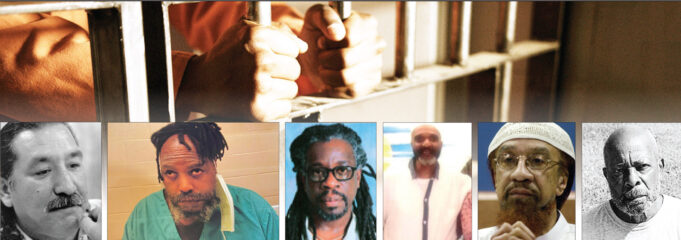Even in an era of social justice reform and political wokeness, America still has some dirty little secrets that include a growing list of elderly political prisoners left to die. These veterans of the struggle for freedom, justice, and equality during the 1960s and 1970s have mostly been forgotten by society while facing unfair and inhumane treatment. Many will inhale their final breaths in prison if nothing changes.
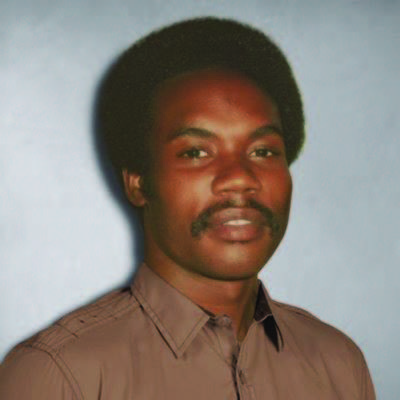
After more than 51 years of prison, Romaine “Chip” Fitzgerald died from natural causes in a California prison last March. Hardly a murmur was heard regarding his death. He was the longest imprisoned Black Panther. While incarcerated, he suffered a stroke and needed help walking. He had to use a wheelchair or walker. Yet was repeatedly denied parole.
In 2021, there was also the death of former MOVE 9 political prisoner Chuck Africa. As last year closed, Russell Maroon Shoatz died in December. He endured 30 years of inhumane solitary confinement. In the spring of 2021, after a delay in medical treatment, it was confirmed that he had terminal stage 4 colorectal cancer. He received a compassionate release in late October 2021. Some two months later, he was gone.
December also saw the death of the Nation of Islam member and political prisoner Omar Askia Ali who died unexpectedly. A community activist who exposed police corruption, he served close to 50 years for a crime he steadfastly denied committing. He blamed his prosecution and conviction on corrupt police officers.
“The state is making a point of punishing these comrades beyond what’s necessary, what could be called cruel and unusual punishment,” Dr. Makungu Akengela from the Atlanta Chapter of the Malcolm X Grassroots Movement told The Final Call.
Dr. Akengela went on to explain the broad majority of the Black community don’t even understand the notion of political prisoners or prisoners of war. “There is minimal discussion of political and prison and inside the United States or acknowledgment that people are in prison for their political views or political acts. They’re criminalized. And so people aren’t even broadly aware of that,” he noted.
“I think for those of us who are activists who understand the role of the state and these things, a big part of our struggle right now, just, first of all, (is) making the reality of political prisoners relevant to the community, and then explaining why we should be concerned about it,” Dr. Akengela said.
“It’s difficult to win the hearts and minds of our people and educate them when they are in the midst of trying to live through a crisis. Sometimes when you are just trying to survive, it’s hard to pay attention to the politics of a situation,” Dr. Akengela concluded.
Political prisoners in American prisons have been the source of debate for many years. And while the United States has denied their existence, Blacks, Native Americans and others who questioned, organized and fought the evils, genocide and bloody, deadly repression meted out by the government have found themselves locked away.
Democracy Now reported Jan. 31 that 77-year-old Native American activist Leonard Peltier “has tested positive for Covid-19 less than a week after describing his prison conditions as a ‘torture chamber.’ Peltier was convicted of aiding and abetting the killing of two FBI agents during a shootout on South Dakota’s Pine Ridge Reservation in 1975 while a member of the American Indian Movement. He has long maintained his innocence and is considered by Amnesty International as a political prisoner.”
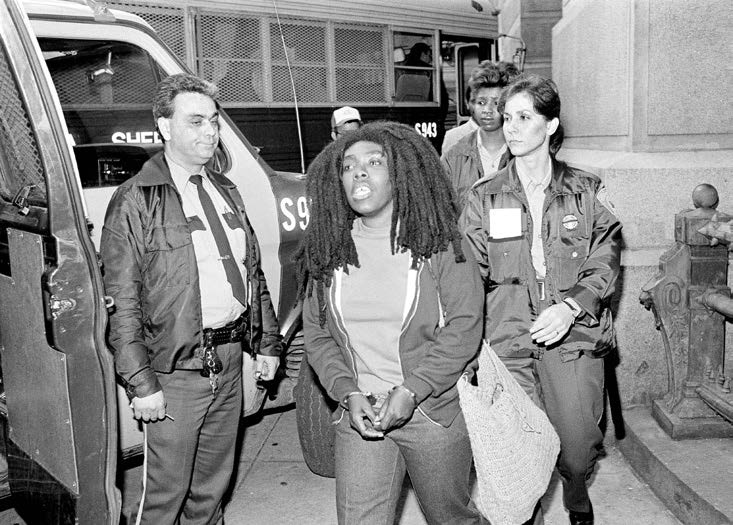
Mr. Peltier’s lawyer and former federal judge Kevin Sharp said his client’s “case was riddled with misconduct, including witness intimidation and withholding exculpatory evidence.”
The lawyer told Democracy Now, “ ‘Peltier’s health, age and unfair trial make him the perfect candidate for executive clemency. The legal remedies are no longer available. … Now it’s time for the (Bureau of Prisons) and the president of the United States to fix this and send him home.”
Last summer, the plight of political prisoners was the subject of an online discussion and calls for a tribunal planned to highlight their plight and increase organizing efforts around their cases.
According to the Jericho Movement, among political prisoners on lockdown today is Ruchell Magee, who was denied parole again in June 2021. He is the longest-held political prisoner in the United States and the world, serving time in California prison system for over 57 years. He is 81 years old.
He has served time related to the 1970 Soledad Brothers case and the attempt of 17-year-old Jonathan Jackson to free his brother George Jackson and others who were on trial and accused of killing a prison guard. Mr. Magee was also freed but San Quentin prison guards eventually shot three of the accused and a critically wounded Mr. Magee survived. He was later convicted of simple kidnapping.
“People have committed horrendous crimes and gotten much less time than Ruchell. Mention that Ruchell was very young when he was arrested and he should be able to enjoy the rest of his life outside of captivity.
Add that we as taxpayers pay to keep this elderly man incarcerated instead of in his community, where he could make a positive contribution toward community development,” said the Jericho Movement in an appeal for his release.
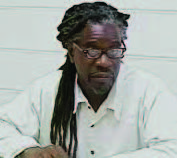
Others include Dr. Mutulu Shakur, who was sentenced to 60 years in prison and targeted by the FBI’s now-infamous Counter-Intelligence Program as early as 1968. “Dr. Shakur has served over 30 years in prison and is currently suffering from multiple myeloma (advanced bone marrow cancer). He has been denied parole nine times and was recently denied a compassionate release,” said the Jericho Movement. His family and friends are mounting a campaign to petition President Biden to grant clemency in the case.
“There are hundreds of people who went to prison as a result of their work on the streets against oppressive conditions like indecent housing and inadequate or complete lack of medical care, lack of quality education, police brutality and the murder of people organizing for independence and liberation,” the Jericho Movement noted.
“These people belonged to organizations like the Black Panther Party, La Raza Unida, FALN, Los Macheteros, North American Anti-Imperialist Movement, May 19th, AIM, the Black Liberation Army, etc., and were incarcerated because of their political beliefs and acts in support of and/or in defense of freedom.”
The U.S. is home to some of the longest serving political prisoners in the world, observed the Black Alliance for Peace.
Philadelphia-based activist, scholar, and educator Krystal Strong is an assistant professor at the University of Pennsylvania. She noted that August 8, 1978, was the date Philadelphia police besieged the Black radical group MOVE’s compound resulting in the arrest of 12 people, including the MOVE 9, members sentenced to prison for 30 to 100 years.
“What we don’t understand is the revolutionary work of these organizations. MOVE’s protest against the Philadelphia school board against educational injustice, their protests at the Philadelphia Zoo against animal cruelty, the revolutionary vision for respect towards all life, food justice, exercise, to being in proper relationship with the planet,” she said in a previous interview.
“The fact that we know more about state violence against MOVE than what MOVE’s radical visions were is a testament to the intended impact of political incarceration. It spreads harms even beyond our beloved community members and revolutionaries who are incarcerated,” Ms. Strong pointed out.
The Honorable Minister Louis Farrakhan of the Nation of Islam has continued to teach about the wickedness of America, warned of her destruction, and exposed her warmongering, lies and wicked foreign and domestic policies. He has also defended and supported political prisoners in the United States.
“Sacrifice is the unselfish giving of what one needs for oneself to accomplish an end that is greater than oneself. The scriptures of the Bible and Holy Qur’an are full of examples of sacrifice,” said Min. Farrakhan in an address delivered during a benefit for then-political prisoner Geronimo Pratt, a Black Panther Party leader who was eventually released after over 20 years in prison for a murder he did not commit.
“It is not enough to praise Malcolm X, Marcus Garvey, Nat Turner, Nobel Drew Ali or any of our brave freedom fighters. What we must do is take the principles that they lived and died on and be willing to sacrifice to see the end for which they lived and died. Then, and only then, will our living not be in vain and their sacrifice not have been in vain,” the Minister said. The “United States government maligned, falsely accused, vilified” those who fought against injustice, he added.
During the online forum last year, one activist named four strategies to free political prisoners, including clemency, commutation, parole, and overturning wrongful convictions. Saudia Durrant, a Philadelphia-based racial justice organizer with the Abolitionist Law Center and the Jericho Movement, also noted dire medical conditions facing MOVE member and former Black Panther Mumia Abu Jamal and Native American activist Leonard Peltier.
“We know that our folks are suffering inside, and we must honor them and commit to not leaving them behind,” she said. Her call for clemency for Mr. Shoatz went unheeded and he died in prison a few months later.
Others have already died behind prison walls: Members of the MOVE 9 have died in prison. Merle Africa died in 1978, Phil Africa died in 2015 and Delbert Africa died shortly after his release in 2020. Robert Seth Hayes was a member of the Black Panther Party. After serving 45 grueling years, he was granted parole and released in 2018, making him one of the longest-held political prisoners in U.S. history. He died shortly thereafter in 2019.
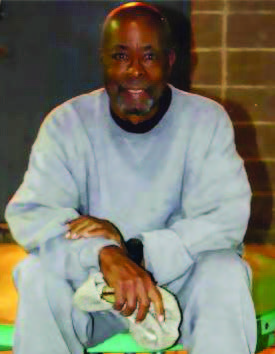
The list of prisoners who are at serious risk of dying and their maladies are harrowing: Jamil Abdullah Al-Amin, 77, was convicted of killing a law enforcement officer in 2000. Formerly known as H. Rap Brown, the Muslim imam was leading efforts to clean up an Atlanta neighborhood when convicted of a killing he denied committing. He is former chairman of the Student Nonviolent Coordinating Committee and a former Black Panther. He is blind and battling cancer. Sundiata Acoli is 84 years old.
The former member of the Black Panther Party and Black Liberation Army contracted Covid-19 and suffers from dementia, and cardiovascular disease. Kamau Sadiki, 68, was convicted in 2003. A former member of the Black Panther Party and the Black Liberation Army, he suffers from a serious leg infection, cirrhosis of the liver, and sarcoidosis. Mutulu Shakur, 70, was convicted in 1988. Today the former member of the Revolutionary Action Movement and Republic of New Afrika is fighting cancer.
Mr. Peltier suffers from Covid-19, diabetes and heart trouble.
Despite the Covid-19 epidemic, there is an overwhelming lack of compassion shown for these men, say their family members and supporters. Elderly, blind, wheelchair-bound, these prisoners pose no threat, even those often released die quickly.
Given the popular movie on the government targeting and killing of Chicago-based Black Panther leader Fred Hampton in the 1960s under the government’s dastardly Cointelpro program and the exoneration of two innocent men wrongly jailed for decades for killing Malcolm X, where is the domestic and international outrage for those still locked away under dubious charges—and even if guilty, they should have long qualified for release? advocates ask.
“Cointelpro did a job on the Black community. They followed up that job with a drug epidemic. They flooded the Black community, so there was a lost generation to be quite honest that generation that followed my generation kind of got swept away in poverty, in drugs, in American propaganda,” commented former political prisoner and Black Panther Marshall Eddie Conwell, who served 43 years in prison. “What is not discussed is how the Cointelpro program put pressure on Black liberation organizations, causing them to react prematurely.
Putting such pressure on people that made people resist and fight back prematurely. And they used that premature resistance in urban guerilla activity to suppress the entire spectrum of the liberation struggle. The end game is the death sentence these captured soldiers are facing,” he said.
“There’s always been a lack of compassion toward these brothers because the government forces and the right-wing forces have continuously organized against them and treated them as political prisoners, but in fact, have labeled them as criminals. If they don’t have a direct family member or close friend that advocates for them, they actually disappear.”
Mr. Conway added, “Medical care in the prison industrial complex is almost nonexistent. People die in those cells. It’s always been a case of them getting the cheapest healthcare providers for the prison system so they can save money. So, it’s bad news, and it’s bad news for elders more than anybody else,” Mr. Conway said.
(Final Call staff contributed to this report.)












